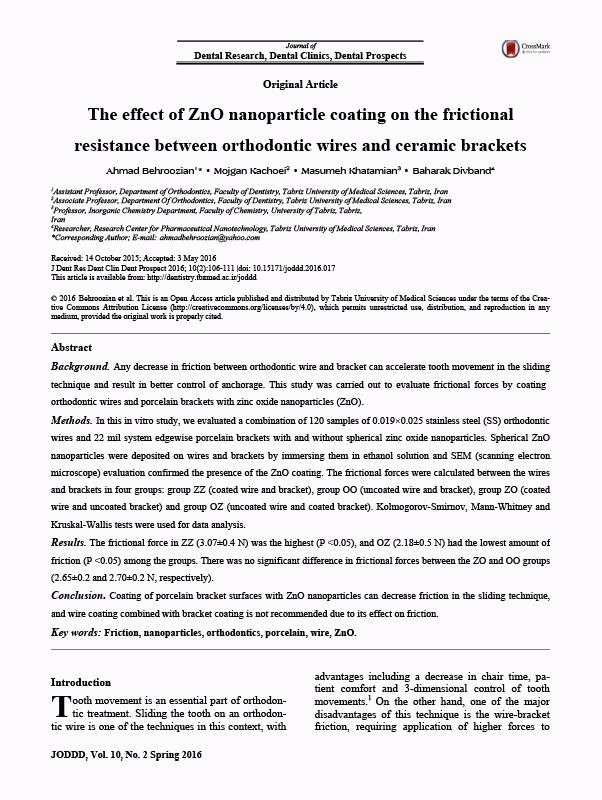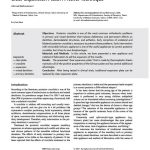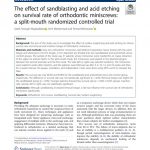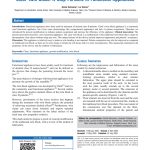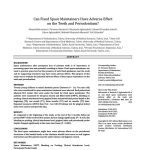استفاده از ذرات نانو یکی از حیطه های رو به رشد در بسیاری از علوم می باشد. در ارتودنسی نیز اخیرا نانوتکنولوژی باعث پیشرفتهایی شدده است.
ما در این مقاله اثر استفاده از ذرات نانو اکسید روی در کاهش اصکاک سیمهای ارتودنسی و براکتهای سرامیکی را مورد بررسی قرار دادیم.
نتایح این مطالعه تحقیق در مجله معتبر Journal of Dental Research, Dental Clinics, Dental Prospects به چاپ رسیده است.
Abstract
Background
Any decrease in friction between orthodontic wire and bracket can accelerate tooth movement in the sliding technique and result in better control of anchorage. This study was carried out to evaluate frictional forces by coating orthodontic wires and porcelain brackets with zinc oxide nanoparticles (ZnO).
Methods
In this in vitro study, we evaluated a combination of 120 samples of 0.019×0.025 stainless steel (SS) orthodonticwires and 22 mil system edgewise porcelain brackets with and without spherical zinc oxide nanoparticles. Spherical ZnOnanoparticles were deposited on wires and brackets by immersing them in ethanol solution and SEM (scanning electronmicroscope) evaluation confirmed the presence of the ZnO coating. The frictional forces were calculated between the wiresand brackets in four groups: group ZZ (coated wire and bracket), group OO (uncoated wire and bracket), group ZO (coatedwire and uncoated bracket) and group OZ (uncoated wire and coated bracket). Kolmogorov-Smirnov, Mann-Whitney andKruskal-Wallis tests were used for data analysis.
Results
The frictional force in ZZ (3.07±0.4 N) was the highest (P <0.05), and OZ (2.18±0.5 N) had the lowest amount of friction (P <0.05) among the groups. There was no significant difference in frictional forces between the ZO and OO groups (2.65±0.2 and 2.70±0.2 N, respectively).
Conclusion
Coating of porcelain bracket surfaces with ZnO nanoparticles can decrease friction in the sliding technique,and wire coating combined with bracket coating is not recommended due to its effect on friction.
